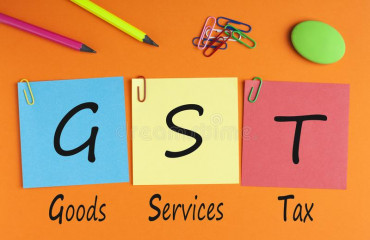
The concepts of un-utilized Input Tax Credit (ITC), Income Tax Refund, and the potential impact of providing interest on un-utilized ITC under the Central Goods and Services Tax (CGST) Act.
The concepts of un-utilized Input Tax Credit (ITC), Income Tax Refund, and the potential impact of providing interest on un-utilized ITC under the Central Goods and Services Tax (CGST) Act.
1. Un-utilized Input Tax Credit (ITC): Un-utilized ITC refers to the input tax credit that remains unused by a taxpayer even after offsetting it against the output GST liability. In simpler terms, it is the excess credit available to a taxpayer due to various reasons such as zero-rated supplies (exports), inverted duty structure (higher input tax than output tax), or when the output GST liability is lower than the available credit.
2. Income Tax Refund: Income Tax Refund is a process where a taxpayer receives back the excess amount of income tax paid to the government. This could happen due to various reasons, such as over payment, deductions, exemptions, or tax credits etc..
3. Interest on Un-utilized ITC under CGST Act: The idea of providing interest on un-utilized ITC under the CGST Act pertains to compensating taxpayers for the delay in refunding their excess input tax credit claims. The CGST Act has provisions that allow the government to refund un-utilized ITC due to reasons like exports or accumulated credit from inverted duty structure. it could tie up the excess credit that businesses could otherwise use for operational purposes.
Providing interest on un-utilized ITC would encourage the government to process and benefiting businesses by ensuring better liquidity.
Potential Benefits and Impact on Revenue Generation:
1. Liquidity Boost for Businesses: Interest on un-utilized ITC would enhance businesses' liquidity by providing them with additional funds they can utilize for operations, investments, and growth. This liquidity boost can stimulate business activities and contribute to economic expansion.
2. Enhanced Compliance: Prompt crediting of un-utilized ITC with interest creates a positive perception of the tax system and its efficiency. This can lead to increased compliance rates, as businesses perceive the system to be more responsive and taxpayer-friendly.
3. Minimized Litigation: Providing interest on un-utilised ITC could reduce such disputes, saving time and resources for both parties and promoting a smoother tax ecosystem.
4. Encouraging Investments: With improved access to working capital due to timely crediting of interest on un-utilized ITC, businesses might be more inclined to invest in their operations, technologies, and expansion plans, contributing to overall economic growth.
5. Positive Government Image and Efficiency: Implementing a mechanism for timely crediting of interest on un-utilized ITC reflects positively on the government and tax administration. It demonstrates commitment to supporting businesses and fostering a conducive business environment.
6. Potential Revenue Growth: While providing interest on un-utilized ITC would involve an expenditure for the government, the overall positive impact on business activities, compliance, investments, and economic growth could potentially lead to higher tax transactions and increased tax revenue in the long run.
7. Reduced Blockage of Funds: Un-utilised ITC being locked up in the tax system, unavailable for productive use. Interest on un-utilized ITC would release these funds, aiding businesses and contributing to economic circulation.
I am concerned taxpayer and active participant in the business community, to respectfully present a suggestion that I believe would contribute to a more equitable and supportive tax framework.
I commend the Central Goods and Services Tax (CGST) Department for its unwavering dedication to ensuring a fair and efficient tax system. The imposition of interest at 18% per annum for minor delays in filing returns or paying taxes showcases the importance of timely compliance. I would like to suggest that a similar principle could be extended to the treatment of un-utilized Input Tax Credit (ITC).
In the spirit of fostering a balanced and just taxation environment, I propose that the CGST Department consider the introduction of a mechanism to remit interest on un-utilized ITC. Much like the system implemented for income tax refunds, where interest is added for retaining tax till filing of return and claim, this approach could offer businesses a much-needed relief when faced with a scenario of accumulating un-utilized ITC.
Un-utilized ITC often arises from situations beyond the control of businesses, such as fluctuations in output liability, seasonality, or variations in business cycles. Recognizing these challenges and introducing interest remission on un-utilized ITC would not only alleviate financial pressures on businesses but also incentivize them to maintain diligent input credit management.
I acknowledge the complexity of implementing such a change and understand the necessity of a balanced approach that aligns with revenue considerations. However, I believe that this proposal resonates with the principles of fairness and collaboration. It holds the potential to positively impact the business ecosystem while reinforcing a harmonious relationship between taxpayers and the tax administration.
I am mindful that any policy revision requires thorough analysis and deliberation. If deemed appropriate, Tax professionals, Chartered Accountants, Trade would be honoured to contribute their insights or participate in discussions to refine this proposal further.
Thank you for considering this suggestion with an open mind. I trust in the CGST Department's commitment to creating an enabling tax environment and remain hopeful that this proposal will be given the due consideration it deserves.
In conclusion, offering interest on un-utilized ITC under the CGST Act can yield various benefits for businesses, compliance, investments, and revenue collection. It aligns with principles of effective tax administration and incentivizes. Nonetheless, it's important to balance these benefits with the fiscal impact on the government's finances.
